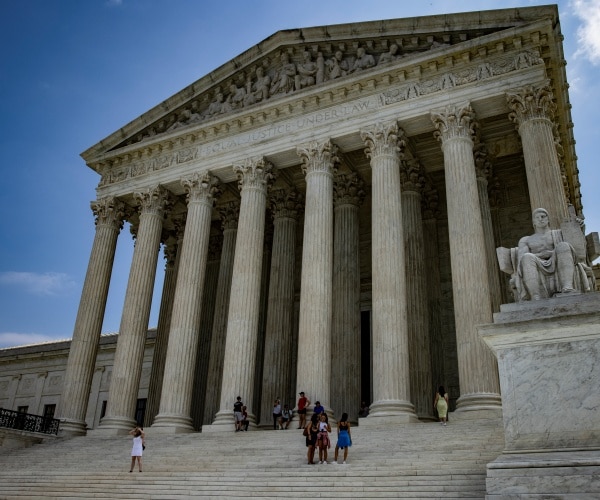The U.S. Supreme Court kicked off its 2021 session Monday with a four-sentence order that Washington, D.C., is not a state, and is therefore not eligible to vote in the House or Senate.
The high court upheld the March 2020 ruling of the U.S. District Court for the District of Columbia that because it is not a ”state,” residents do not have the constitutional right to a vote in Congress, the Washington Examiner reported Monday.
In the report, the residents of the district argued that not being able to have representative votes in the two chambers of Congress was a violation of their rights to due process and equal protection.
“Residents of the District of Columbia are the only adult American citizens subject to federal income taxes who lack voting representation in Congress, except for felons in some states,” lawyers for the residents wrote in legal papers at the time.
The high court, which began its 2021 session traditionally on the first Monday in October, rebuked that claim, citing a 2000 case in which it ruled the same way, blocking the district from having votes in Congress because it is not a state as defined in Article I of the U.S. Constitution, which states that congressional members are ”chosen every second year by the people of the several states.”
The high court at the time said the only way to remedy the situation would be for Congress and the nation to amend the document to allow the district voting status.
“I had a feeling that once we got it going, we could get enough interest generated that the Supreme Court would take it,” Charles A. Miller, a lawyer from Covington & Burling, said after the court ruled in the earlier suit. “Unfortunately, it didn’t work out that way.”
Attempts to give D.C. residents a vote in Congress failed in both 1976 and in 1998.
Congress has, as recently as April, tried again to give new life to the issue, with House Democrats twice passing legislation in the last two years to make it the nation’s 51st state.
The most recent bill passed along party lines 216-208, with Democrats voting for the measure and Republicans opposing it.
”Congress has the moral obligation and the constitutional authority to pass H.R. 51,” Del. Eleanor Holmes Norton, a Democrat and the district’s nonvoting representative in the House, said at the time of that vote.
Republicans in the Senate would likely filibuster the bill, which would need the support of at least 10 GOP members to proceed further.
Republicans oppose the idea because they see it as strictly a ”power grab” by Democrats because most of the city’s 700,000 residents vote Democratic.
”It’s about Democrats adding two new progressive U.S. senators to push a radical agenda … to reshape America into the socialist utopia they always talk about,” Rep. James Comer, a Kentucky Republican, said in April. ”It’s not really about voting representation. It’s about Democrats consolidating their power in Washington.”




